About Me

Hi, I'm a Professional Airbnb Superhost
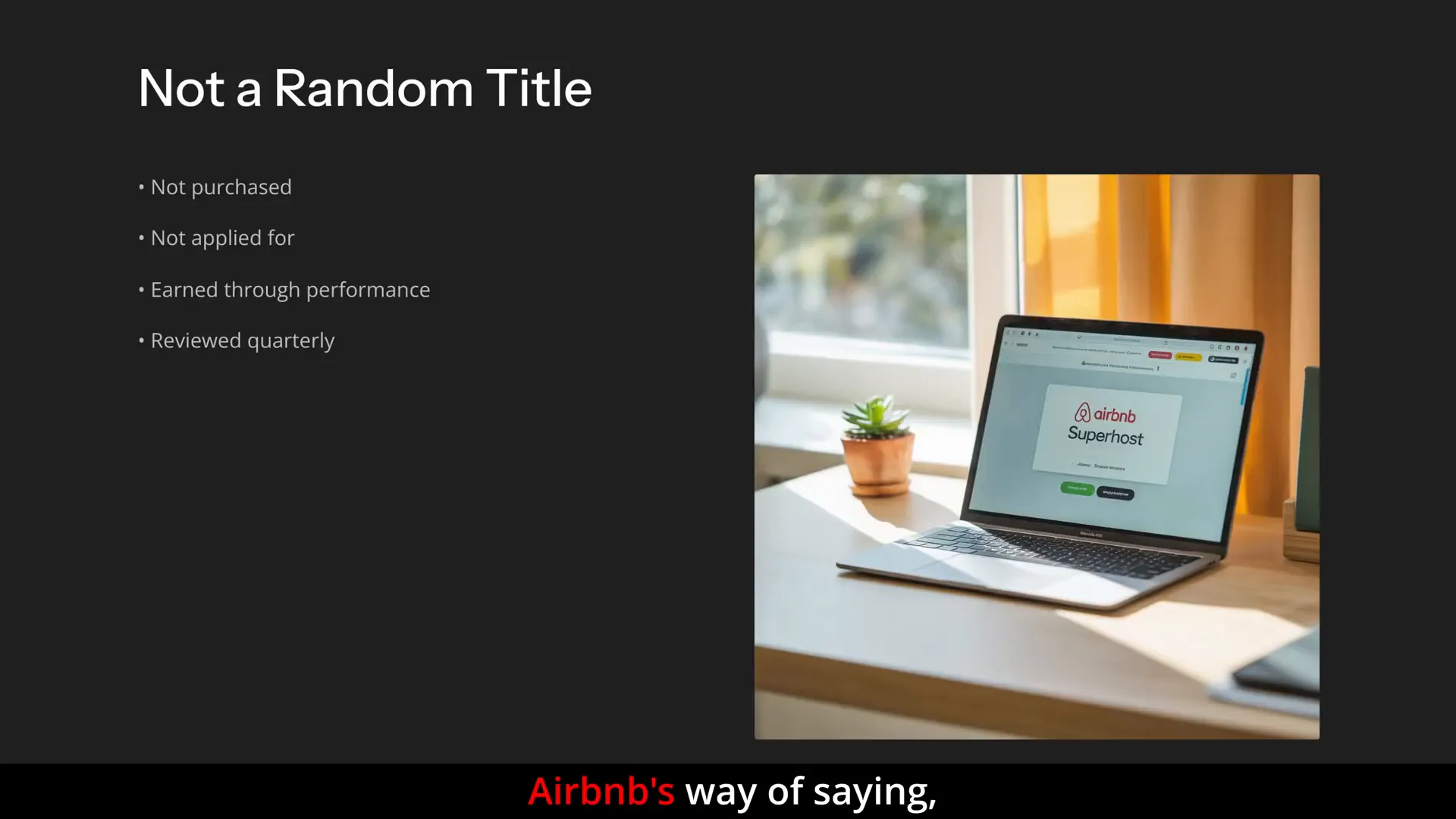
No-Nonsense Tips: What Does Superhost Really Mean on Airbnb? (And How to Earn It)
If you’ve ever browsed Airbnb listings or considered becoming a host yourself, you’ve probably come across the term “Superhost.” But what does it really mean? Is it just a fancy title? A paid upgrade? Or something more meaningful? In this detailed guide, you’ll get the no-nonsense tips you need to understand exactly what the Superhost badge stands for, how Airbnb awards it, and what it truly says about a host’s experience and reliability. This article cuts through the fluff and jargon to give you a clear, straightforward explanation of the Superhost status. Whether you’re a guest looking for trustworthy stays, a new host aiming to elevate your hosting game, or just curious about Airbnb’s system, this guide will walk you through everything step by step. Step 1: Understanding What a Superhost Is First things first: a Superhost is not a random or paid title you can simply apply for. It’s Airbnb’s way of signalling that a host genuinely knows what they’re doing. Think of it as Airbnb’s stamp of approval that a host is reliable, attentive, and experienced. Unlike some badges or perks on other platforms that you might buy or request, the Superhost badge is earned through consistently excellent hosting performance. Airbnb automatically reviews hosts every three months to decide if they still qualify for this status. Key takeaway: You don’t get to choose to be a Superhost — you earn it by meeting Airbnb’s criteria over time. It’s a mark of trustworthiness and professionalism. Step 2: The Four Core Criteria Airbnb Uses to Award Superhost Status So, what exactly does Airbnb look at when deciding who gets the Superhost badge? There are four main criteria, and you need to meet all of them to earn or maintain the status. 1. Reviews: Consistently High Guest Ratings Airbnb requires hosts to have an average rating of 4.8 stars or higher over the past 12 months. This means most of your guests must walk away happy and communicate that satisfaction through their reviews. Why is this so important? Reviews are the clearest way guests express their experience, and an average rating this high shows you’re doing a great job meeting or exceeding expectations. It’s not about perfection — you don’t need a perfect 5.0 rating — but close to it. This encourages hosts to maintain high standards consistently. 2. Cancellations: Zero Last-Minute Cancellations Allowed Airbnb strongly discourages hosts from cancelling bookings at the last minute because it disrupts travel plans and damages guest trust. To qualify as a Superhost, you must have zero cancellations in the qualifying period unless there is a serious, Airbnb-accepted reason. This means you must be reliable and honour your commitments. Last-minute cancellations can hurt your reputation and your chance of earning or keeping the Superhost badge. 3. Response Rate: Quick and Consistent Communication Communication is key in hospitality. Airbnb expects Superhosts to respond to at least 90% of guest messages within 24 hours. It doesn’t have to be a detailed novel — just a quick, helpful reply that shows you’re paying attention. Guests want to know their host is accessible and responsive. A fast response time helps build trust and smooths the booking and stay experience. 4. Hosting Activity: Meaningful Engagement with Guests To be a Superhost, you need to demonstrate consistent hosting activity. Airbnb requires either: At least 10 completed trips in the past year, or At least 100 nights booked across at least three separate stays. This ensures the badge isn’t given to someone who listed their space once and then disappeared. You need to show that you’re actively engaged in hosting multiple guests over time. Step 3: What the Superhost Badge Really Means for Guests Now that you understand what it takes to become a Superhost, let’s talk about what that means for you as a guest. If you book with a Superhost, you’re not guaranteed a flawless stay, but you’re much more likely to have a smooth, drama-free experience. Think of it like choosing a restaurant that’s always busy but never messy. The food might not be Michelin-starred, but you can count on a solid meal. Similarly, a Superhost has proven they take hosting seriously, are responsive, and have a track record of happy guests. Superhost status is a signal of trustworthiness and professionalism. It means the host is experienced and committed, not just dabbling or casually listing their property. Step 4: What the Superhost Badge Means for Hosts If you’re a host, earning the Superhost badge is a major milestone. It’s not just a trophy or a flex; it’s a tangible proof that you’ve done this before and done it well. Maintaining Superhost status keeps you accountable to high standards, which benefits your guests and your business. It often leads to better visibility on Airbnb, higher booking rates, and more positive reviews — all of which contribute to long-term success. However, it’s important to remember that Superhost doesn’t mean perfect. You might still face challenges or occasional unhappy guests, but consistently meeting the criteria shows you’re reliable and professional. Step 5: How to Work Towards Becoming a Superhost Ready to earn your Superhost badge? Here are practical tips to help you hit all four criteria and stand out on Airbnb: Focus on Guest Experience: Go above and beyond in cleanliness, communication, and thoughtful touches. Happy guests leave great reviews. Avoid Cancellations: Only accept bookings you can commit to. If an emergency arises, communicate promptly with Airbnb and guests. Be Responsive: Reply quickly to inquiries and messages. Even a short confirmation can reassure guests you’re on top of things. Stay Active: Keep your calendar updated and strive to host at least ten trips or 100 nights annually. Consistency is key. Remember, Airbnb reviews your performance every three months, so continuous effort is essential. Keep monitoring your ratings, response times, and cancellations to stay on track. Step 6: Why You Should Care About No-Nonsense Tips for Airbnb Hosting In the fast-growing short-term rental market, no-nonsense tips like these cut through the noise
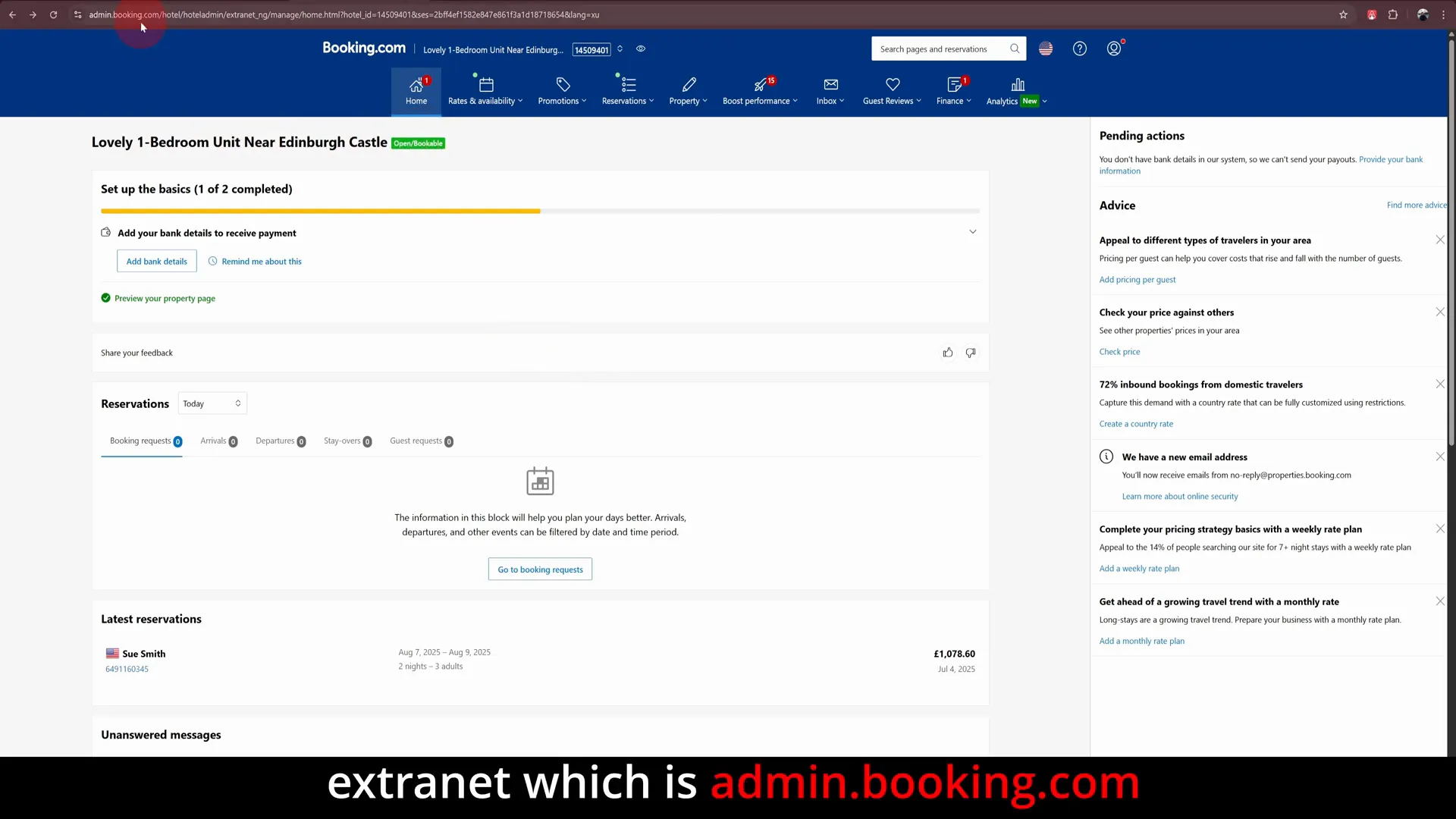
No-Nonsense Tips: How to Add Bank Details to Your Booking.com Host Account
If you’re a host on Booking.com or just starting out managing short-term rentals, one of the crucial steps you’ll need to complete is adding your bank details to your Booking.com extranet account. This is essential to ensure you receive your payouts smoothly and on time. I’m here to walk you through the entire process with No-Nonsense Tips that make this task straightforward and hassle-free. Whether you’re new to hosting or a seasoned property manager, this comprehensive guide will help you confidently add your bank information, verify it securely, and even customise your payout frequency if that option is available for your account. Let’s dive in step by step. Step 1: Access the Booking.com Extranet from a Computer The first No-Nonsense Tip is to perform this entire process from a desktop or laptop computer rather than the Booking.com mobile app. While the app is handy for managing reservations and responding to guests, it’s not designed for adding or editing sensitive financial information. Log in to your Booking.com extranet by visiting admin.booking.com. This is the administrative dashboard where you manage your property details, reservations, and financial settings. Once logged in, you will see the dashboard interface, which is your command centre for all hosting activities. Step 2: Navigate to Your Finance Settings From the Booking.com extranet homepage, look for the Finance tab in the main menu. Click on it, then select Finance Settings from the dropdown or sidebar menu. This section is dedicated to managing all your payment-related information, including bank details, payout schedules, and invoices. Step 3: Add Your Bank Details If you haven’t already added your bank details, you’ll be greeted with a prompt to do so right at the top of the Finance Settings page. You’ll see an option labelled Add your bank details or Edit bank details if you are updating existing information. Click on Edit bank details to begin the process. Step 4: Verify Your Email Address For security purposes, Booking.com will send a verification code to the email address associated with your host account. This step ensures that only authorised hosts can add or modify sensitive bank information. Check your email inbox and enter the verification code you receive into the prompt on the extranet. Step 5: Enter Your Bank Information Based on Your Country Once verified, you’ll be taken to a screen where you can enter your bank details. The exact fields you see will depend on your country of residence because banking systems vary globally. For example, as a UK host, the system will ask for your sort code and account number. In other countries, you may need to provide different details such as an IBAN, SWIFT/BIC code, or routing number. Make sure to double-check your bank details for accuracy to avoid payment delays. Step 6: Submit and Wait for Confirmation After entering your bank details, click on Update bank details to submit the information. Booking.com typically takes around five working days to verify and properly add your bank account to your host profile. During this period, keep an eye on your email or extranet notifications for confirmation or any requests for additional information. Step 7: Set Your Payout Frequency (If Available) Once your bank details are successfully added, you can manage how often you want to receive your payouts. Not all hosts or countries have this option yet, so if you see the payout frequency settings, consider yourself lucky! To adjust this, return to the Finance Settings page under the Finance tab. Scroll down until you find the Payout Timings section. Here, you’ll see your current payout schedule, which might be weekly by default. You can choose to change it to daily or monthly payouts depending on your preference and what’s supported in your region. Adjusting your payout frequency can help you better manage your cash flow and align payouts with your business needs. Additional No-Nonsense Tips for Managing Your Booking.com Host Account Beyond adding your bank details, here are some extra tips to keep your Booking.com host account running smoothly: Always use a desktop or laptop for sensitive updates: The extranet is designed for desktop use, especially for financial and property details. Keep your email address up to date: You’ll receive important verification codes and payment notifications via email. Double-check your bank details: Typos or incorrect information can delay payouts. Monitor your payout schedule: If the payout frequency option is available, adjust it according to your business needs. Verify your identity promptly: Booking.com may require additional verification to comply with local regulations. Why Adding Bank Details Correctly Matters One of the most common issues new hosts face on Booking.com is delayed or missed payouts. Ensuring your bank details are entered correctly and verified can prevent these headaches. If your payouts don’t arrive as expected, the first thing to check is your bank information in the extranet. By following these No-Nonsense Tips, you’ll minimise errors and get paid on time, helping you maintain a healthy cash flow to keep your short-term rental business thriving. Troubleshooting Common Issues If you encounter any problems during this process, here are some troubleshooting tips: Verification code not received: Check your spam/junk folder and ensure your email address in the extranet is correct. Bank details not accepted: Confirm you’re entering the correct format for your country. Contact your bank if unsure. Payouts not arriving: Verify that your bank details have been approved and check your payout schedule settings. Cannot find payout frequency option: This feature is not available in all countries or for all hosts yet. Wrapping Up Adding and managing your bank details in your Booking.com host account doesn’t have to be complicated. By following this step-by-step guide packed with No-Nonsense Tips, you’ll be set up to receive your payouts securely and on time. Remember to always use your computer to access the extranet for financial updates, verify your email promptly, and double-check your banking information. If the payout frequency option is available to you, take advantage of it to customise how often you get paid.

No-Nonsense Tips: How to Leave a Review on Booking.com After Your Stay (in 2 Minutes!)
Sharing your experience after a trip is an essential part of travel today. Whether you had an incredible stay or encountered some issues, leaving a review on platforms like Booking.com not only helps future travellers make informed decisions but also provides valuable feedback to hosts and property managers. However, the process of leaving a review can sometimes seem confusing or time-consuming, especially if your stay has already ended. That’s why these No-Nonsense Tips will guide you through the quickest and simplest way to leave a review on Booking.com after your stay — even if it’s been a little while since you checked out. In just a couple of minutes, you can share your honest feedback, rate your experience, and even upload photos to help others get a clear picture of the property. This step-by-step tutorial is designed to make the review process seamless and straightforward. So, if you’ve recently enjoyed or completed a booking, here’s exactly how you can leave your review on Booking.com without any hassle. Step 1: Log In and Navigate to Your Bookings The first step to leaving a review on Booking.com is to log in to your account through the Booking.com app. The review feature is integrated directly within the app, making it easy to access your reservations and provide feedback. Once you’ve logged in, look for the Bookings tab, which you’ll find at the bottom of the screen. This tab is your gateway to all your current and past reservations. By default, Booking.com will display your active or upcoming reservations under this tab. However, since you want to leave a review for a stay you’ve already completed, you’ll need to switch to the Past section. Click on the Past option to view all your previous bookings. This is where you’ll find the reservation you want to review. Step 2: Find the Booking You Want to Review Booking.com allows you to leave a review for up to three months after your stay has ended. This generous window means you don’t have to rush to leave feedback immediately after checking out. Within the Past bookings list, look for the reservation you want to rate. If your stay was within the last three months, you’ll see an option labeled Rate your stay next to that booking. This option is your entry point to the review menu. Simply tap Rate your stay to begin sharing your experience. Step 3: Choose Your Overall Rating Once you tap Rate your stay, you’ll be taken to the review interface. The first thing you’ll do is select an overall rating for the property. This rating typically uses a star system, where you can rate from one star (poor) to five stars (excellent). Your overall rating is the key summary of your experience. Consider factors like the quality of service, comfort, and how well the property met your expectations when deciding your score. Step 4: Rate Specific Aspects of Your Stay After you’ve selected your overall rating, Booking.com gives you the option to rate specific aspects of your stay. These usually include: Cleanliness – How tidy and well-maintained was the property? Location – Was the property conveniently located for your needs? Value for Money – Did the price reflect the quality and services you received? Other factors – Sometimes there are additional categories depending on the property type. These detailed ratings help paint a clearer picture for future guests and provide targeted feedback to hosts on areas they excel in or may need improvement. Remember, these ratings are optional, but taking a moment to fill them out can make your review more useful and informative. Step 5: Write Your Feedback Once you’ve completed all your ratings, click Continue to move on to the next step: writing your review. This is your chance to share any specific thoughts about your stay. Whether you want to highlight exceptional service, mention a standout feature, or constructively point out areas for improvement, your written feedback adds valuable context beyond just a star rating. Keep your review honest and respectful. Detailed, clear reviews are the most helpful to both hosts and future guests. Step 6: Add Photos to Your Review (Optional) If you took photos during your stay that you think would benefit others, you can upload them alongside your review. Visuals can provide potential guests with a real glimpse of the property, showcasing rooms, amenities, views, or even any issues you encountered. Adding photos is optional but highly encouraged if you want your review to stand out and be even more informative. Step 7: Submit Your Review After you’ve completed your ratings, written your feedback, and optionally uploaded photos, the final step is to submit your review. Click the Finish button to send your feedback to Booking.com. From here, Booking.com will review your submission to ensure it complies with their guidelines. This process usually takes a couple of days, after which your review will be published on the property’s page for other travellers to see. Additional Tips for Writing Effective Booking.com Reviews While the technical process for leaving a review is quick and easy, crafting a thoughtful and useful review takes a bit more care. Here are some No-Nonsense Tips to help you write reviews that truly make a difference: Be Specific: Mention particular details about your stay—whether it’s the comfort of the bed, the responsiveness of the host, or the cleanliness of the bathroom. Specifics help readers understand exactly what to expect. Balance Positives and Negatives: Even if you had a great experience, noting small areas for improvement helps hosts enhance their service. Conversely, if your stay was less than ideal, try to acknowledge any positives as well. Keep it Respectful: Honest feedback is important, but avoid inflammatory or rude language. Constructive criticism is far more effective and appreciated. Update Your Review if Needed: If you revisit the property or the host addresses your concerns, consider updating your review to reflect your latest experience. Use Photos Wisely: Upload clear, relevant photos that support your comments. Avoid
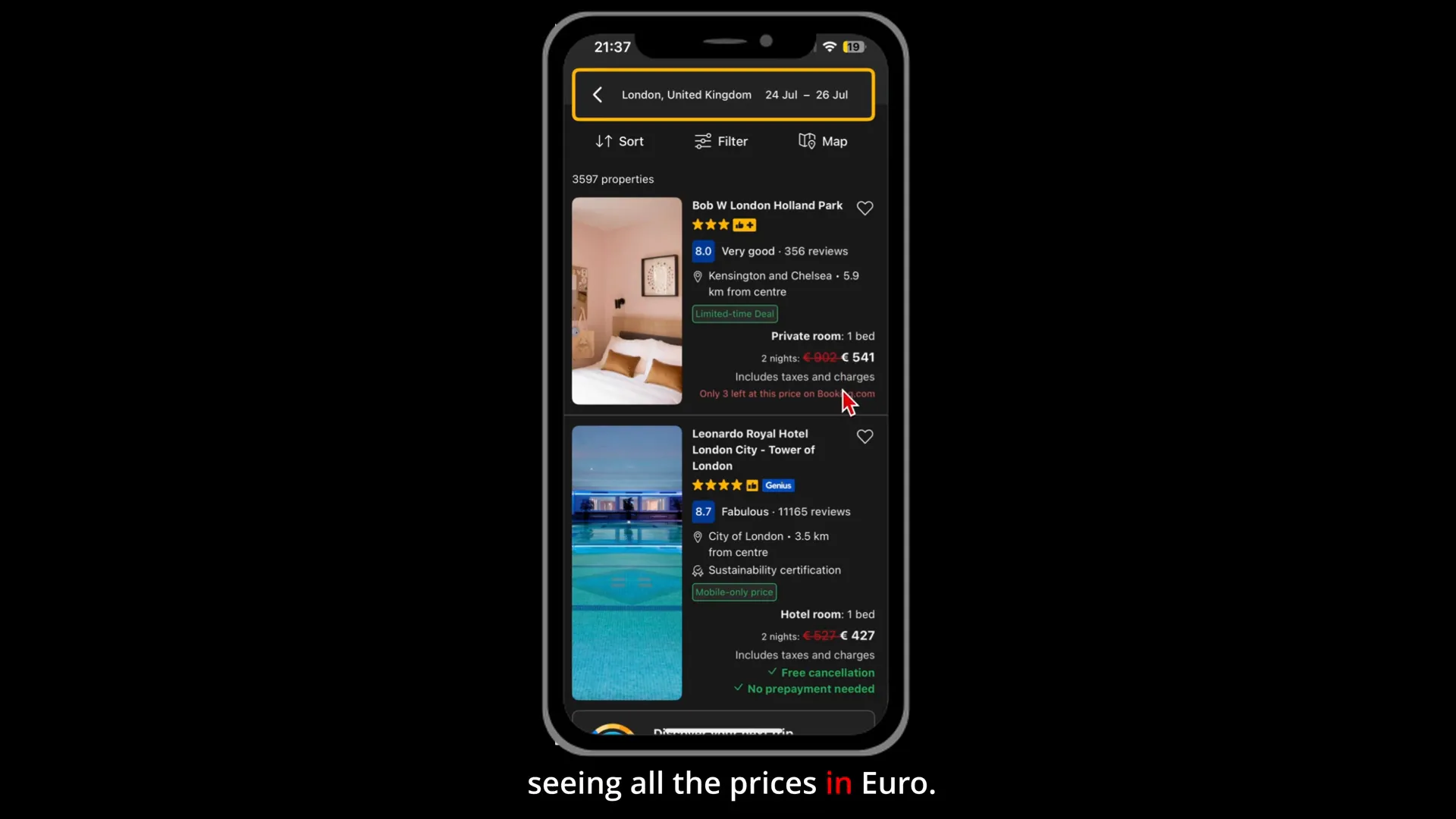
No-Nonsense Tips: How to Change Currency on Booking.com App in 10 Seconds
If you’ve ever been frustrated by seeing prices in the wrong currency while browsing accommodations on the Booking.com app, you’re not alone. Whether you’re planning a trip abroad, comparing rates from different countries, or simply want to see prices in your preferred currency, knowing how to quickly switch currency settings can save you time, confusion, and even money. In this comprehensive guide, I’ll walk you through the exact steps to change the currency on the Booking.com app in just 10 seconds — no complicated menus, no guesswork. This article is based on straightforward, practical advice from the No-Nonsense Airbnb channel, which specialises in delivering quick, clear tips for travellers and short-term rental hosts alike. By following these steps, you’ll be able to see all prices in the currency that makes the most sense for you, whether that’s US dollars (USD), British pounds (GBP), Euros (EUR), or any other currency supported by Booking.com. Why Changing Currency on Booking.com Matters Before diving into the step-by-step tutorial, let’s briefly explore why this seemingly simple setting can have a big impact on your booking experience. Clarity and Convenience: Seeing prices in a familiar currency helps you instantly understand the cost without needing to do mental conversions or checking exchange rates. Budget Management: When you’re comparing multiple properties or planning your travel budget, having consistent currency display prevents errors and makes financial planning easier. Better Decision Making: Currency fluctuations can be confusing. Seeing prices converted to your preferred currency lets you make more informed choices on where to book. Now that you know why this feature is essential, let’s get straight to the point with easy-to-follow, No-Nonsense Tips on how to change currency on the Booking.com app. Step 1: Open the Booking.com App and Go to the Home Screen Start by opening your Booking.com app on your mobile device. Once the app loads, make sure you’re on the home screen where you can search for properties. At this point, you might be seeing prices displayed in the default currency for your location or the last currency you used. For example, if you are currently seeing prices in Euros (€), but want to change it to US dollars ($), this is where you begin. Step 2: Access ‘My Account’ on the Home Screen Next, look towards the bottom or top of the home screen (depending on your device) and locate the My Account icon or option. This is your profile area where you can manage settings related to your account and app preferences. Tap on My Account to open your profile settings. Step 3: Scroll Down to Find ‘Device Preferences’ After entering your account page, scroll down through the options until you find a section labeled Device Preferences. This area controls the app’s behaviour based on your device settings and preferences, which includes language, notifications, and importantly, currency. Tap on Device Preferences to continue. Step 4: Select ‘Currency’ From Device Preferences Inside the Device Preferences menu, you’ll see several options. The second option listed should be Currency. This is where you can change the currency that the app uses to display prices. Tap on the Currency option. Step 5: Choose Your Preferred Currency Once you tap on the currency option, a list of available currencies will appear. This list includes major global currencies such as US dollars (USD), British pounds (GBP), Euros (EUR), Japanese yen (JPY), and many more. Select the currency you want to see prices in from now on. For example, if you want to switch from Euros to US dollars, simply tap on US dollars (USD). This change will immediately update your currency preference within the app. Step 6: Verify the Currency Has Changed After selecting your preferred currency, press the back button or navigate back to the home screen. Now, when you search for any property, the prices displayed will reflect your chosen currency. For instance, if you switched to US dollars, all accommodation prices will now be shown in USD instead of Euros. Additional Tips for Using Booking.com Currency Settings Changing the currency on the Booking.com app is straightforward, but here are some extra pointers to make the most out of your booking experience: Double-Check Currency When Booking: Although the app shows prices in your preferred currency, sometimes the final charge on your payment method may be in the local currency of the property. Always verify before confirming payment. Update Currency When Traveling: If you’re travelling to a different country, consider switching the currency to the local one to get a better sense of the actual cost. Compare Prices Across Currencies: Sometimes, switching between currencies can reveal slight differences in pricing due to exchange rates or Booking.com’s own pricing policies. Keep Your App Updated: Currency settings and app interfaces can change with updates, so make sure your Booking.com app is always up to date for the smoothest experience. Why These No-Nonsense Tips Make a Difference Many travellers overlook small settings like currency preferences, but these details can significantly enhance your overall booking experience. By following these no-nonsense tips, you save time, reduce confusion, and make better-informed travel decisions. Imagine scrolling through dozens of hotel options and instantly understanding the price in your own currency without pulling out a currency converter app or calculator. That’s the power of this simple setting. Plus, if you’re managing multiple bookings or comparing prices for a group trip, seeing all prices in one consistent currency helps avoid any surprises when it’s time to pay. Frequently Asked Questions About Changing Currency on Booking.com Can I change the currency on the Booking.com website too? Yes, the Booking.com website also allows you to change the currency. Usually, you can find the currency option at the top right corner of the site. However, the app method described here is tailored specifically for mobile users who want quick access while on the go. Will changing the currency affect my booking history or saved properties? No, changing the currency display does not affect your saved properties, bookings, or account information. It
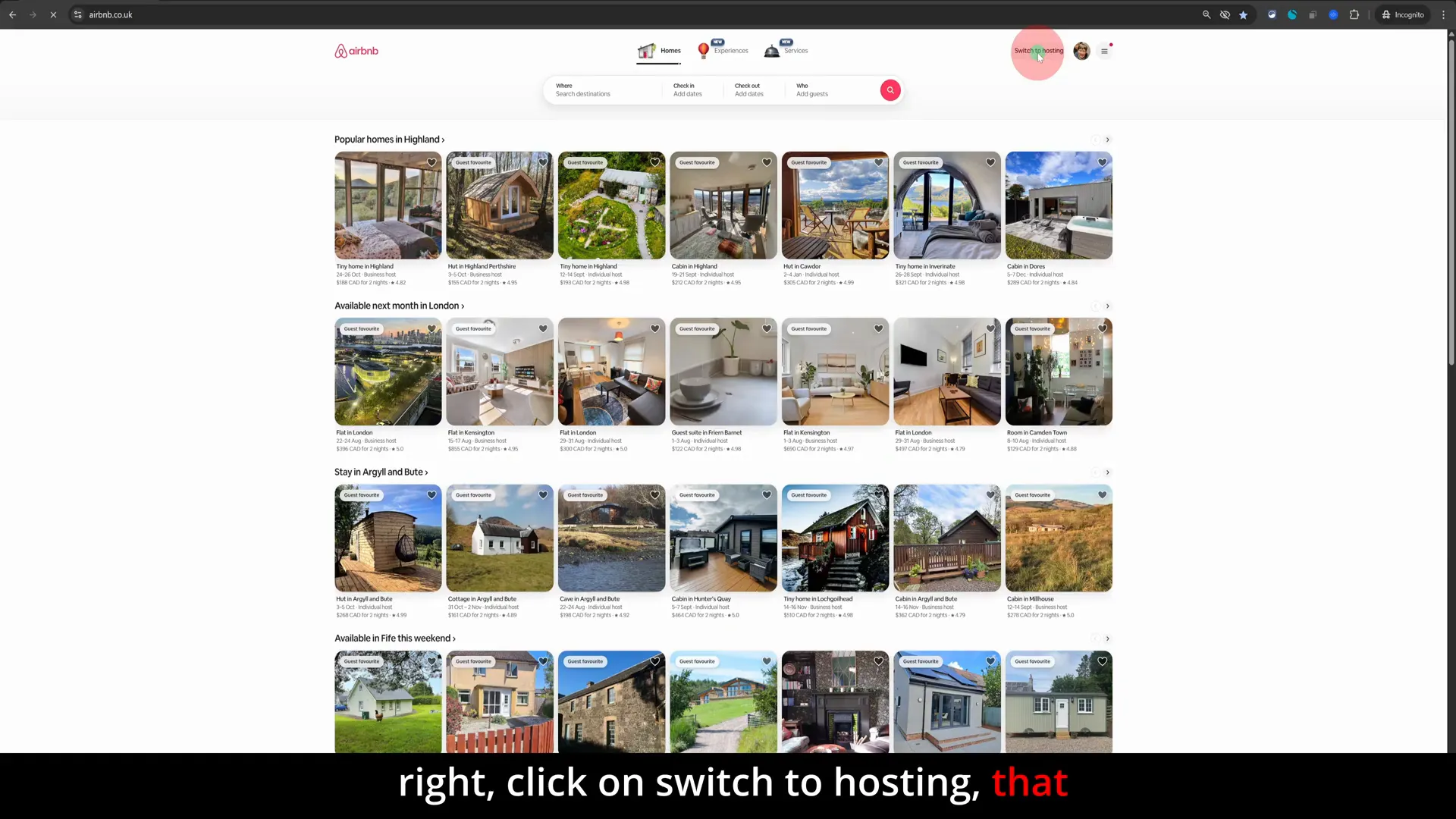
No-Nonsense Tips: How to See Your Airbnb Listing Views in 2 Minutes
Understanding how many people are viewing your Airbnb listing is crucial if you want to optimise your short-term rental performance and attract more bookings. As a host, knowing your listing’s visibility gives you insights into how well your property is performing compared to others in your area, and it helps you make data-driven decisions to improve your listing’s appeal. In this comprehensive guide, you’ll discover no-nonsense tips to quickly and effectively check your Airbnb listing views using the desktop dashboard — no complicated setups or guesswork involved. Whether you’re a new host just getting started or an experienced short-term rental owner looking to sharpen your hosting strategy, this step-by-step tutorial will help you access your listing analytics in just a couple of minutes. Let’s dive right in. Step 1: Log in to Airbnb and Switch to Hosting Mode The first thing you need to do is access your Airbnb account from a computer. This is important because the mobile app doesn’t support detailed analytics views like the desktop version does. Using your desktop browser ensures you have full access to all the hosting tools and data. Once you’re logged in, look to the top right corner of the Airbnb homepage. Here, you will see your profile image or icon. Next to it, there is an option called Switch to hosting. Click on this to transition from a guest view to your hosting dashboard. This action will take you directly to your hosting dashboard, where you can manage your listings, bookings, and, importantly for this guide, your performance insights. Step 2: Open the Hosting Menu and Select Insights Once you’re on the hosting dashboard, your next task is to open the hosting menu. Look for the icon next to your profile image in the top right corner again — this icon opens a dropdown menu specifically for hosts. Clicking on this icon will reveal several options. The second option in this menu is Insights. This is the gateway to all the analytical data related to your listings. Click on Insights to proceed. The Insights section is designed to give you a clear picture of how your listing is performing in various ways — from views to bookings and conversion rates. Step 3: Navigate to the Conversion Section to Find Views Within the Insights dashboard, you’ll find several categories on the left-hand side. To see the number of views your listing is receiving, you need to click on the Conversion option, which is usually the third option down. Once you click on Conversion, you’ll see a set of sub-options. The third one here is Views. Select this to display the data showing how many people have viewed your listing. By default, the views data will show you the number of daily views your property has received over the past month. This timeline is very useful for spotting trends, such as whether your listing’s visibility is increasing or declining. Why Tracking Views Matters Views represent the first step in the booking funnel — the more views, the higher the chance of converting those into bookings. If your views are low, it might mean your listing isn’t appearing in enough search results or that your listing title and photos aren’t compelling enough to attract clicks. On the other hand, if your views are high but bookings are low, that tells you something different — perhaps your pricing, description, or reviews need attention. Understanding this metric is key to making targeted improvements. Step 4: Compare Your Listing’s Views with Similar Listings One of the no-nonsense tips that many hosts overlook is benchmarking your listing’s performance against other similar properties in your area. This comparison can give you a realistic sense of how well you’re doing in the local market. In the Views section, look for the Similar listings option. Clicking on this will overlay a comparison graph on your views data, showing you how your listing stacks up against others nearby. In the graph, the dotted line represents the average number of views other properties in your area receive, while the black line shows your listing’s views over the same period. This visual comparison helps you quickly identify whether your listing is outperforming or underperforming relative to the competition. For example, if your listing is new, you might see a gradual increase in views as it gains traction. If your views are consistently below average, you might want to revisit your listing’s photos, title, or pricing strategy to boost visibility and appeal. Step 5: Download Your Views Report for Further Analysis If you want to dig deeper into your listing’s performance, Airbnb allows you to download a monthly report of your views data. This can be especially useful if you’re managing multiple listings or want to track your progress over time. Simply click on the Monthly report button in the Views section. This will download a CSV file containing your listing’s views data, which you can open in spreadsheet software like Excel or Google Sheets. Having your data in CSV format lets you perform more detailed analyses, such as: Comparing view counts across different months or seasons. Identifying specific days or weeks with spikes or drops in views. Correlating views data with booking rates to optimise your pricing and availability. Using data-driven insights like these is a hallmark of successful hosts who want to maximise their Airbnb business. Additional Tips for Using Your Views Data Effectively Now that you know how to access and interpret your Airbnb listing views, here are some extra no-nonsense tips to make the most of this information: 1. Monitor Views Regularly Check your views at least once a week to stay on top of trends. Sudden drops might signal issues like calendar blocking, lower search rankings, or seasonal changes. 2. Optimise Your Listing Based on Views If you notice your views are below average, consider: Improving your listing photos — high-quality, bright, and appealing images attract clicks. Rewriting your title and description to highlight unique selling points. Adjusting your
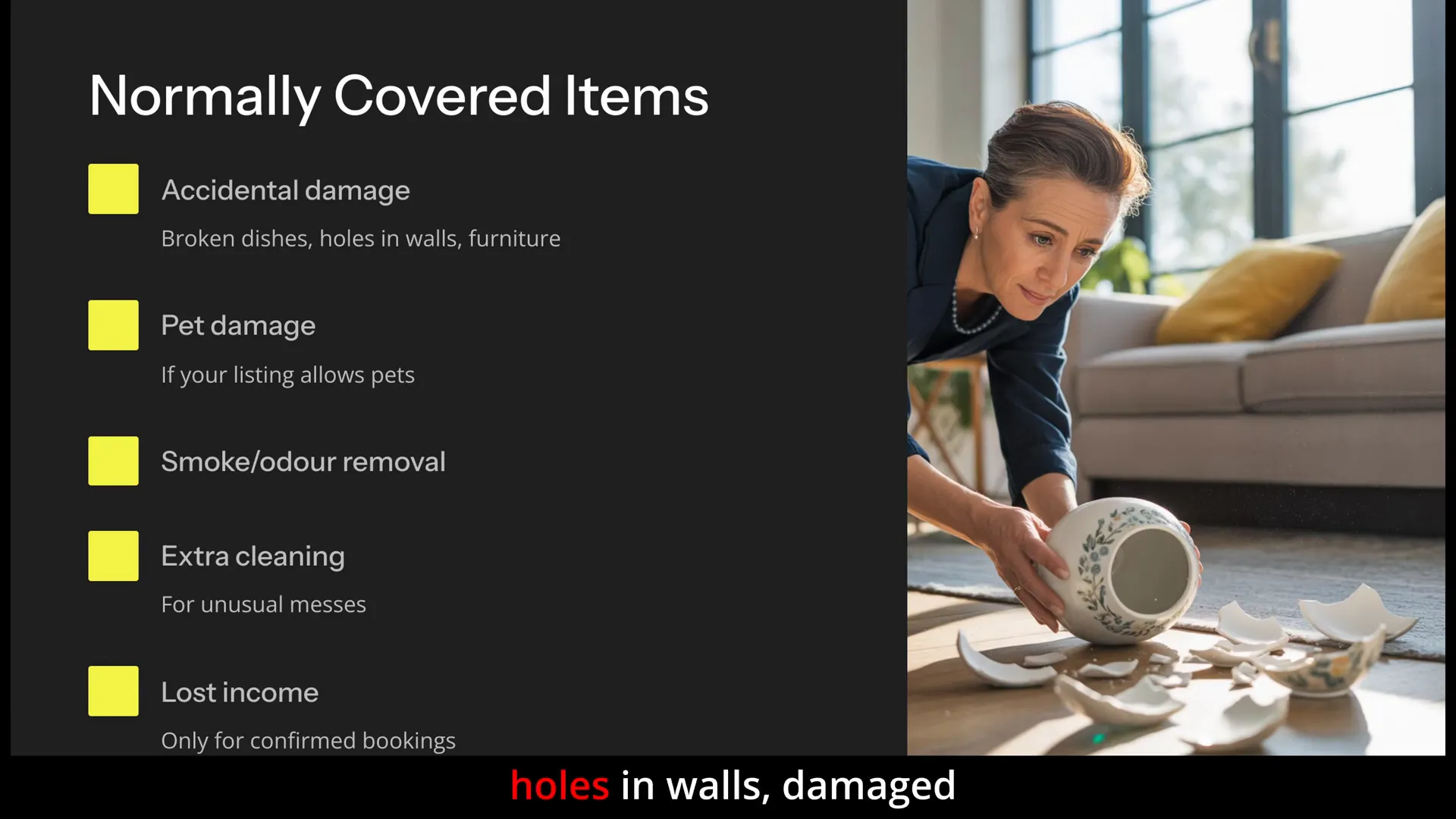
No-Nonsense Tips: What Airbnb Damage Protection Covers (and What It Doesn’t)
If you’re an Airbnb host, you’ve probably heard about Airbnb’s damage protection policy, known as AirCover. Airbnb claims it offers coverage for property damage and liability, but what does that really mean? What kinds of damage are covered, and more importantly, what risks could still leave you out of pocket? I’m here to give you the full lowdown with no fluff—breaking down exactly what Airbnb’s AirCover covers, what it doesn’t, and the common pitfalls that most hosts overlook until it’s too late. Hosting on Airbnb can be a rewarding experience, but it comes with risks. Understanding the limits of the protection Airbnb offers can save you from nasty surprises and financial headaches. So, let’s dive in with some clear, no-nonsense tips on navigating Airbnb’s damage protection and protecting your investment. Step 1: Understand the Basics of Airbnb AirCover First things first—yes, Airbnb’s AirCover is real coverage. It’s not just marketing hype. If a guest accidentally breaks something like a table, stains your carpet, or their child decides to get creative with a Sharpie on your walls, AirCover can come to your aid. Airbnb states that AirCover provides up to three million dollars in coverage for property damage and liability. That sounds impressive, and in my experience, Airbnb does pay out—but only when the damage fits their strict definition. Here’s what is typically covered under Airbnb’s AirCover: Accidental damage by guests: This includes broken dishes, holes in walls, damaged furniture, and other sudden mishaps. Pet damage: If your listing allows pets and a guest’s dog chews up your couch, AirCover can help with repairs or replacements. Smoke or odor removal: If there’s an unusual smell or smoke damage caused by guests, AirCover can cover the cost of extra cleaning. Extra cleaning: For extreme messes like glitter bombs or mysterious fluids that require more than a standard clean. Lost income: If your property is damaged and you lose confirmed bookings because of it, AirCover can compensate you for that lost income. While this sounds reassuring, the devil is in the details. Airbnb’s definition of damage and the conditions for filing claims are quite specific, so understanding the limitations is crucial. Step 2: Know What Airbnb AirCover Does NOT Cover Now for the less pleasant news—there are plenty of things Airbnb AirCover won’t cover, and some of these exclusions might surprise you. These gaps in coverage can leave you vulnerable if you don’t know about them beforehand. Expected Wear and Tear If a guest scuffs your floors or your couch becomes saggy from overuse, AirCover won’t help. Airbnb labels this as “expected aging.” It doesn’t matter if the item was in perfect condition before the guest arrived—normal wear and tear caused by guests is not covered. So if your guests sleep like elephants and your mattress is worn out after a weekend, that’s on you. Gradual Damage This one is sneaky and often overlooked. Gradual damage means deterioration that happens over time rather than suddenly. Mold from long hot showers: If guests cause mold buildup in your bathroom by taking excessive hot showers, AirCover won’t cover the mold remediation. Water damage from slow leaks: Damage caused by a slow leak or overuse is considered a maintenance issue, not a sudden damage event. Unless something breaks suddenly, Airbnb will likely classify the damage as your responsibility to maintain. Cash, Jewelry, and Collectibles If you keep valuables like a vintage Rolex, rare coins, or an emergency cash stash in your Airbnb, don’t expect AirCover to protect them. Even if a guest steals these items, Airbnb’s damage protection excludes cash, jewelry, and collectibles. This means you need to be vigilant about what you leave out in your listing and not assume Airbnb will cover theft of valuables. Locked Storage or Unlisted Areas Here’s a big one that many hosts miss: if you have a locked storage room, garage, or any area not listed as part of your rental, Airbnb might not cover damage inside those spaces. If a guest breaks in and tampers with your belongings in these unlisted areas, filing a claim can become complicated. To protect these spaces, make sure to: Include them in your listing description explicitly. Consider installing a security camera outside these spaces to monitor activity. Shared Spaces in Private Room Rentals If you rent out a private room but share common areas like the kitchen or hallway, Airbnb might deny damage claims if the guest can argue someone else caused the damage. This ambiguity can make it harder to prove who is responsible, so extra documentation and clear communication with guests are essential. Step 3: Document Everything with Time-Stamped Photos One of the most critical things you can do as a host is to take clear, time-stamped photos before and after every booking. Without solid photo evidence, Airbnb might simply say they can’t verify the damage happened during a guest’s stay. If you don’t message the guest immediately about the damage, or if you fail to provide before-and-after photos, your claim is likely to be denied. I know it’s annoying to take photos every time, but trust me—this is your best protection when a claim becomes necessary. Step 4: Understand What Constitutes Deep Cleaning Coverage Airbnb says they will cover deep cleaning if guests leave a serious mess, but this doesn’t mean they cover a full scrub down after a typical dirty stay. Deep cleaning coverage applies to extreme situations like biohazards, bodily fluids, or other severe messes that regular cleaning can’t handle. So don’t expect AirCover to pay for a standard turnover clean if your guests just leave things a bit messy. Step 5: Recognize When Claims Are Most Likely to Be Denied There are several common reasons Airbnb rejects AirCover claims. Knowing these can help you avoid pitfalls: Damage was reported too late: Timing is everything. Report damage as soon as you discover it. You didn’t message the guest via Airbnb: Communication through the Airbnb platform is crucial for claim validation. No clear before and after photos:


